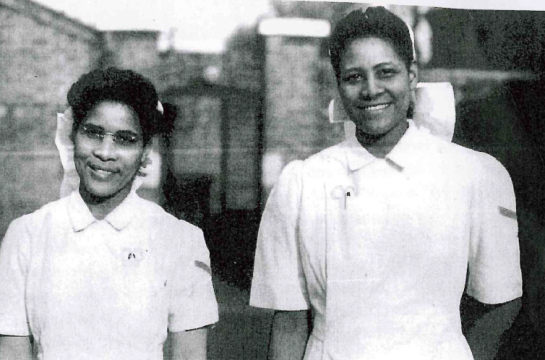
(Image - Trainee Nurses (1945): Imperial War Museum, UK Ref-PL9609F)
What do the (mostly invisibilised) stories of Black Women Migrant Healthcare workers in post-war Britain reveal about socio-cultural understandings in the Anglosphere of care, migration and social mobility? 1948 saw the establishment of the ground-breaking National Health Service (NHS) in Britain. This year was also significant for the arrival of Afrodescendant migrants in greater numbers from the colonies to British shores. This came to be known as the ‘Windrush’ generation; named after the iconic ship that transported one of the first groups of post-War migrants. The British state actively procured workers from former or existing colonies; including for the healthcare sector. Much has been made of migrant workers’ contribution to the past – and present – sustainability of British institutions such as the NHS. However, there is a dearth of interest in the stories of the so-called Windrush generation’s Black women healthcare professionals. The objective of the project (Post-)Migrant Narratives of Mobility and Care: The ‘Windrush’ Generation and the NHS Experience in Society, Literature and Culture is to visualise, for the first time, in a comprehensive way, the formation of narratives surrounding Afrodescendant migrant women’s experience in/of care, particularly in the British context of the National Health Service. That is, how these experiences are written about, narrated and the way these are related by the women themselves. What do these women's accounts reveal about the process of negotiating identity (identities) across multiple sites of potential discrimination on account of their ethnicity, gender, class and/or migration status? How much do they subvert or co-construct existing narratives around concepts of achievement, progress and merit?
Researcher: Tola Ositelu

